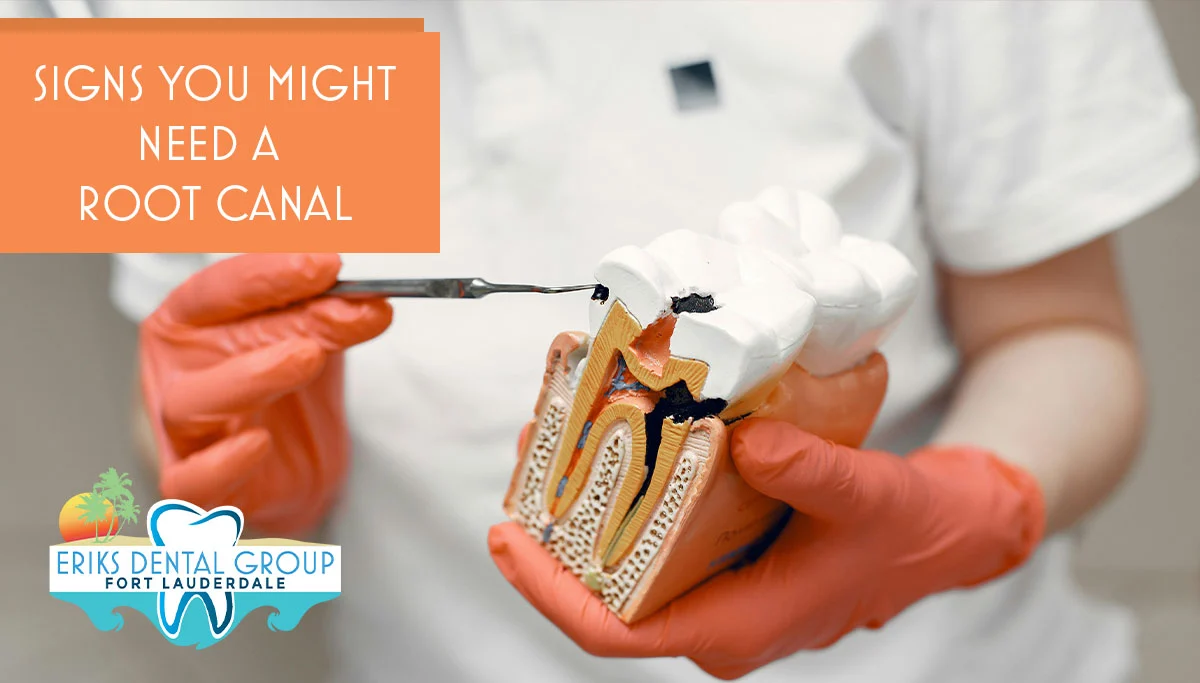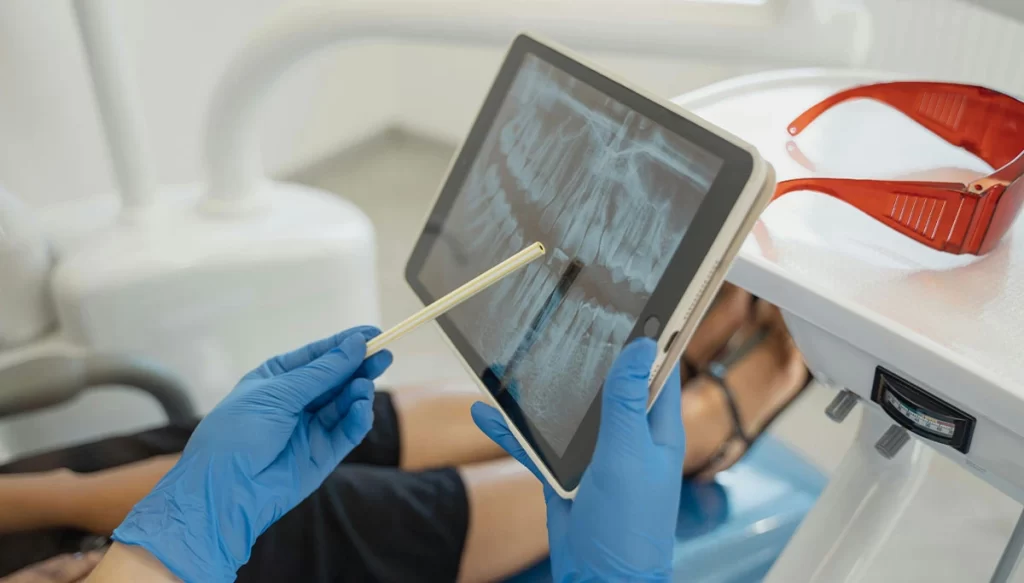
Sometimes toothaches can point to a deeper underlying issue. Your toothache could be a sign of an infected dental pulp. These infections don’t go away by themselves and often require root canal treatment. While root canal treatment sounds daunting, it’s an effective treatment that will help save your teeth from extraction.
In this article, we explain what dental pulp is and discuss the 6 signs that you might need a root canal.
Dental pulp is found in the center of each tooth and is where the blood vessels and nerves are located. The root of each tooth connects to the pulp. The nerves in your dental pulp help your tooth to feel pain. If an infection is present, the dental pulp becomes a suitable environment for bacteria to form, causing pain and complications.

Let’s look at the difference between a general toothache and a serious pump infection. These signs will help you identify if you may need root canal treatment.
Persisting dental pain should never be ignored. If over-the-counter pain medication isn’t helping, it could be a sign of a more serious dental issue, such as an infected tooth. If you notice pain associated with pressure, such as when you bite down or chew, this could be a warning sign.
Are hot or cold foods suddenly causing you toothache? This shouldn’t be the case, as severe temperature sensitivity can point to a dental infection. Be on the lookout for prolonged sensitivity. If your morning coffee is causing you consistent sensitivity, then it might be time to get your teeth checked out.
For most of us, our teeth may not be as white as we would like. If you notice a discoloration on a single tooth, this could be a sign of an underlying issue, such as a bacterial infection. Consistent tooth pain accompanied by a dark gray color coming from your tooth, are both warning signs that you may have some dying tooth pulp. This can only be removed by root canal treatment.
Any swelling around your face or jaw could indicate an infection. Infection leads to inflammation, which can cause swelling. The swelling can even present itself in your neck area. There could also be a general tenderness in a certain area of our jaw, which is also a warning sign to observe.
If you’ve sustained a past or recent injury to a tooth, this could leave your tooth vulnerable to a bacterial infection. Perhaps you knocked your jaw by accident, but no teeth were chipped. These impacts can leave a tooth in a compromised position. In some cases, an infected tooth can begin to loosen. This is mainly due to pulp necrosis, in which the nerve of the tooth dies. In this process, acid waste from the decaying pulp can soften the tooth root and the surrounding bone, causing the tooth to loosen. If you suspect that you may have a compromised tooth, it’s best to get it checked out by a specialist. They will be able to offer you the right dental restoration plan for your teeth.
This may be an unsuspecting sign, but should not be overlooked. Tooth infections can cause bad breath. If you’ve been brushing your teeth regularly but still notice bad breath or a foul taste in your mouth, it could point to an infection.

The term ‘root canal’ can be accompanied by much anxiety and anticipated pain. But this should not be the case. In a root canal procedure, the infected pulp is removed, and the internals of the tooth are cleaned and sealed. Your dentist will follow the following process:
The first step is to gather the necessary imaging to give your endodontist a good idea of the severity of the damaged tooth. Next, you will be given high-quality numbing agents to make the procedure as pain-free as possible. Next, a rubber piece of material called a dam will be positioned around your tooth to isolate it.
Once the dental team has confirmed that the area is numb, a small opening will be made at the top of the crown. Once opened, the infected tooth pulp will all be cleaned out.
Once the infected areas have been removed, the tooth cavity is cleaned and shaped. A rubber-like material called gutta-percha is then used to fill the space. The tooth is then sealed, and images are taken to confirm the integrity of the tooth.
In some cases, a temporary filling is used at the opening of the crown to allow the tooth some time to heal. In these cases, you will be booked for a second session to permanently fill and seal the tooth.
A tooth that has undergone root canal treatment should be fitted with a dental crown. Without this, your tooth may be at risk of cracking. Your endodontist will present you with several crown-fitting options. Your tooth will be fitted with a temporary filling while the crown is being manufactured, and the crown will be fitted at your follow-up appointment.
At Eriks Dental Group, Fort Lauderdale, we offer professional dental services. Our team of dental specialists will walk you through every step required in your root canal process. Our commitment to dental excellence means that we enjoy remarkable results. With a focus on compassionate and experienced treatment, we’ll ensure that your root canal treatment will transform your smile.
Call us at 954-463-5051 to book your dental check-up today.
© 2026 Eriks Dental Group - Fort Lauderdale - All Rights Reserved. Dental Website Design by Connectica